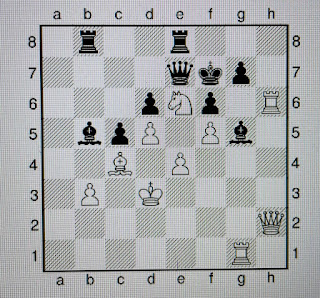It is natural and common for a sports fan to fervently insist that the golden age of sports coincides with his childhood. My earliest sports memories date back to the mid-1970s, and many of my fondest sports memories are from the 1980s. For me, the period from the mid-1970s through the late-1980s is the golden age of sports, and that time period is memorable not only because of the splendid athletes who were in their primes--including but not limited to Julius Erving, Pete Maravich, George Gervin, Kareem Abdul-Jabbar, the Magic Johnson-Larry Bird-Michael Jordan triumvirate, Mario Andretti, Bjorn Borg, Pete Rose, Eric Davis, Reggie Jackson, Joe Montana, Jerry Rice, Walter Payton, and Bo Jackson--but also because of the insights provided by TV analysts such as Hubie Brown, John Madden, and Tim McCarver. On the play by play side, Al Michaels, Dick Enberg, Dick Stockton, and Marv Albert were the cream of the crop.
Brown coached the Kentucky Colonels to the 1975 ABA title, Madden coached the Oakland Raiders to a win in Super Bowl XI, and McCarver played for two World Series champions in the 1960s. All three understood what it takes to win at the highest level of sport, and all three had the gift of conveying that understanding to viewers within the flow of the game. When Brown, Madden, or McCarver did an NBA, NFL, or MLB game respectively, you knew that it was a big game--and you knew that you were going to be blessed with intelligent analysis.
Brown still occasionally works NBA games for ESPN/ABC, but he has not been a lead analyst for many years. Madden passed away on December 28, 2021. McCarver passed away yesterday. Michaels now does Amazon's Thursday night NFL games and he is still excellent, if perhaps not quite at his peak. Enberg passed away in 2017. Albert and Stockton retired in 2021, though they both appeared as guests during the NBA's 75th Anniversary Celebration Game.
Intelligent sports commentary has never been plentiful, but a gaping void exists in the NBA, NFL, and MLB that may never be filled. That is not to say that there are not some very good commentators working today--but will any of the commentators who are in their primes now be considered all-time greats?
McCarver served as the national TV analyst for a record 24 World Series on three different networks (ABC, CBS, Fox). Joe Buck, McCarver's play by play partner for 18 years, said on Thursday, "I learned really fast that if you were in his inner circle, he would be a fierce defender of you and for you. He taught me how to deal with criticism because he had been criticized his whole broadcast career. And sometimes it was because he was a teacher of the game. If some player or manager didn't manage or play the way he thought the game should be played, he let a national audience know it. He was always the first one in the clubhouse the next day. If that person had something to say back to him, he would engage and stood his ground, but it was fair. He taught me a lot about the game, but he taught me as much or more about how to broadcast on a on a national level." In 2012, McCarver received the Baseball Hall of Fame's prestigious Ford C. Frick award for broadcasting excellence.
McCarver's deep understanding of baseball strategy was always evident during his broadcasts, but perhaps the most famous example of his combination of knowledge and prescience happened during game seven of the 2001 World Series. As the left-handed Arizona batter Luis Gonzalez stepped to the plate to face the Yankees' legendary closer Mariano Rivera, McCarver declared, "The one problem is, Rivera throws inside to left-handers. Left-handers get a lot of broken bat hits into shallow outfield, the shallow part of the outfield. That is the danger of bringing the infield in with a guy like Rivera on the mound." Not long after McCarver uttered those words, Gonzalez won the game--and the World Series--with a bloop hit to the shallow part of the outfield.
I never understood people who criticized McCarver for talking too much. His job was to explain what was happening on the field, and he did his job very well. I have always followed basketball and football more closely than I followed baseball, but prior to the 1995 baseball strike I was an avid baseball fan who very much enjoyed listening to McCarver's insights (and I still enjoyed listening to McCarver call the World Series after 1995, even though I did not follow MLB as closely as I previously had).
Before McCarver won three Emmys as MLB's premier TV analyst, he earned two All-Star selections, a second place finish in the 1967 NL MVP race, and a pair of World Series rings with the St. Louis Cardinals (1964, 1967). McCarver is the only catcher post-1900 to lead either league in triples (13 in 1966). He was the preferred catcher for two different Hall of Fame pitchers (Bob Gibson with the Cardinals, and Steve Carlton with first the Cardinals and then the Philadelphia Phillies).
McCarver played in four different decades (1950s, 1960s, 1970s, 1980s), and he served as a broadcaster from 1980-2019. He exemplifies the term "baseball lifer."

